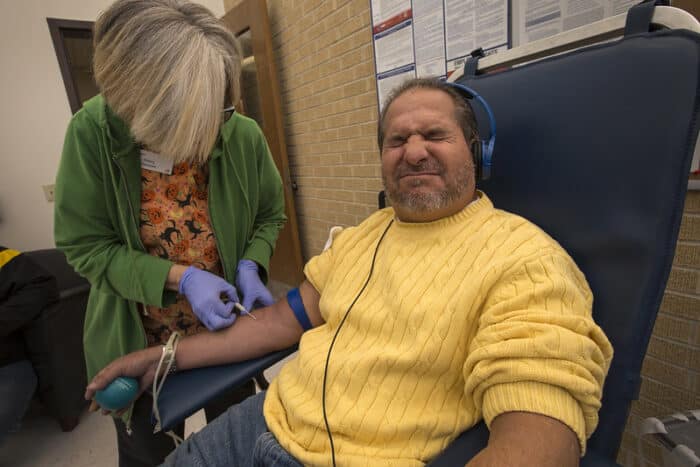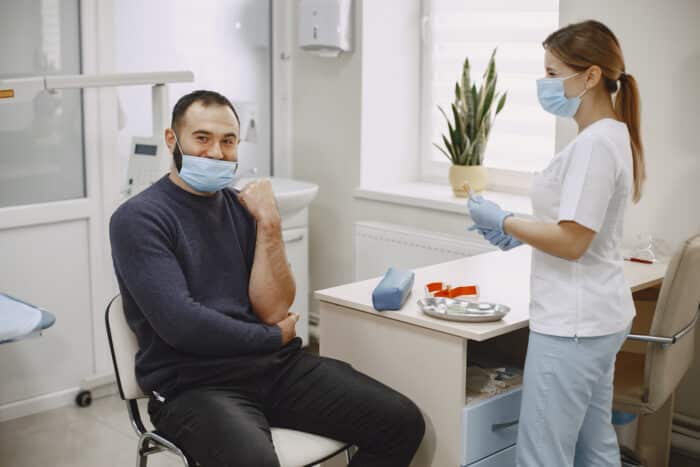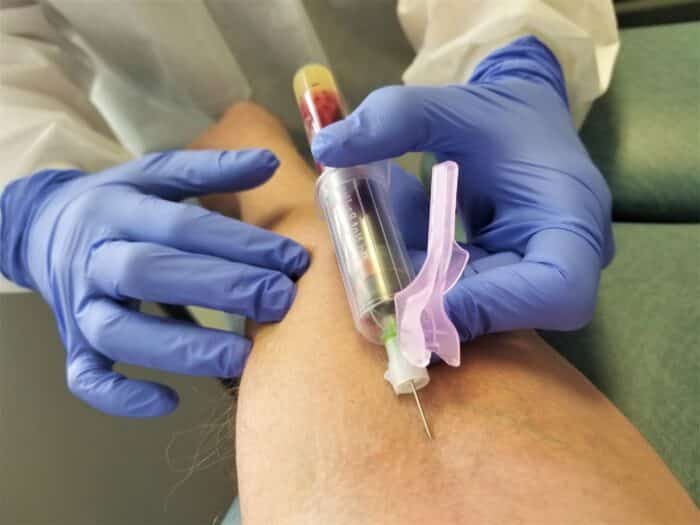Wondering if a career in phlebotomy is worth it?
Or are you an aspiring phlebotomist confused about the skills required to become a successful one?
We understand your dilemma, and we’re here to guide you through it.
Phlebotomists are an essential part of any healthcare team since their main role is to draw blood for the diagnosis of most diseases.
If you’re here, you might have questioned which skills are important to become a valued phlebotomist.
In this article, we’ll uncover the two most important skills required for phlebotomists, and other additional skills to make you stand out from the crowd.
Let’s get into it.
Read: What is a Phlebotomist

Do You Want To Become a Phlebotomist? Check Out Free Phlebotomist Masterclass!
In our masterclass you learn:
- How to be a Phlebotomist faster…in just 2 months!
- Avoid student debt & driving to classes
- #1 thing employers want from Phlebotomists
- How to stand-apart & get a university certificate for a strong resume
The Two Most Important Skills You Need as a Phlebotomist
In every profession, there are certain skills that are essential for every aspiring professional to incorporate in their lives.
For phlebotomists too, there are two important skills that are required for you to become a successful one, Let’s take a look at them in detail.
Venipuncture Techniques:
Venipuncture can be defined as the skill of drawing blood from a person’s veins, which is a key part of a phlebotomist’s work.
Understanding where veins are located in the body is crucial, like knowing the map of a treasure hunt. This helps avoid discomfort and ensures safe blood collection.
Proper venipuncture technique matters a lot, as it helps phlebotomists tackle difficulties like small or hidden veins. Being a master of this technique ensures a smoother experience for both patients and the phlebotomist.
Patient Interaction and Communication:
When it comes to being a phlebotomist, a big part of your job revolves around focusing on the patient.
This means that your role as a phlebotomist is all about making the patient feel important and at ease. To do this, good communication is super important.
When a phlebotomist talks to a patient in a kind and clear way, it helps the patient feel comfortable and less worried. This is also important because when patients feel relaxed, the whole experience becomes better for them.
To make sure patients feel comforted, phlebotomists additionally need to explain things accurately and simply. They can use simple words to tell patients what’s going to happen during the blood draw.
Also, it’s really important for phlebotomists to listen carefully when patients talk. This helps them understand any worries the patient might have. Plus, using friendly body language and being understanding helps build a connection with the patient.
All these things together make the patient feel respected and cared for, turning a potentially nervous situation into a more positive one.
Also read: How to Become a Phlebotomist
Additional Important Skills for a Phlebotomist
Now that you know the two most important skills you would need as a phlebotomist, another thing to note is that having just those two skills might not be the best for you.
As mentioned earlier, every aspiring professional needs some specific skills to become a valuable employee.
So let us discover some additional skills you can incorporate into your resume to impress employers.
- Paying close attention to detail is a must-have skill. This means being super careful when labeling and noting down information about the blood samples.
- Being adaptable is also an important skill. Some people might be nervous, others might be chatty – being adaptable helps phlebotomists connect and make everyone feel at ease. It’s like changing gears on a bike depending on the road ahead.
- Staying calm under pressure is essential. Phlebotomists need to keep their cool during tough moments like tricky blood draws or emergencies.
See more: Phlebotomist Skills
Conclusion
In conclusion, the role of a phlebotomist is crucial in healthcare, and two essential skills stand out as vital for success in this profession.
First, mastering the art of venipuncture is paramount, as it ensures a safe and efficient blood collection process, minimizing discomfort for patients.
Second, effective communication and interpersonal skills are equally important, as they foster trust and comfort in patients, making the entire experience more positive. By combining technical expertise with compassionate communication, phlebotomists can provide top-notch care, making them invaluable members of the healthcare team.
Additional Sources:
- Phlebotomist Salary
- Phlebotomist Requirements
- Phlebotomist Programs
- Ultimate Phlebotomist Resume Guide – Phlebotomy Job
- Can A Phlebotomist Start IVs?
- What is the Main Responsibility of a Phlebotomist?
- What is the Difference Between a Licensed Phlebotomist and a Certified Phlebotomist?
- Where Can a Phlebotomist Work?
- What Do You Need To Be a Phlebotomist?
- Pros and Cons of Being a Phlebotomist
- Phlebotomy Externship
- Mobile Phlebotomist
- What are the Different Types of Phlebotomy Certifications?
- Top Places That Hire Phlebotomy Techs
- Therapeutic Phlebotomy
- Phlebotomist Education
- Online Phlebotomy Classes
- Order of Draw Phlebotomy
- Phlebotomy Internship
- 4-Week Phlebotomy Classes Online
Related Articles
-
How to Be Successful in College in 2022 – 7 Simple Tips to Succeed
-
How Do Scholarships Work? Read This First…Truth is Shocking
-
7 Best College Majors 2024: What Should I Major In?
-
How to Choose a College – 10 Things You Must Consider in 2024
-
Why Go to College? Top 13 Benefits for Adult Students in 2022
-
Top 5 Best Alternatives to Community College for 2024







